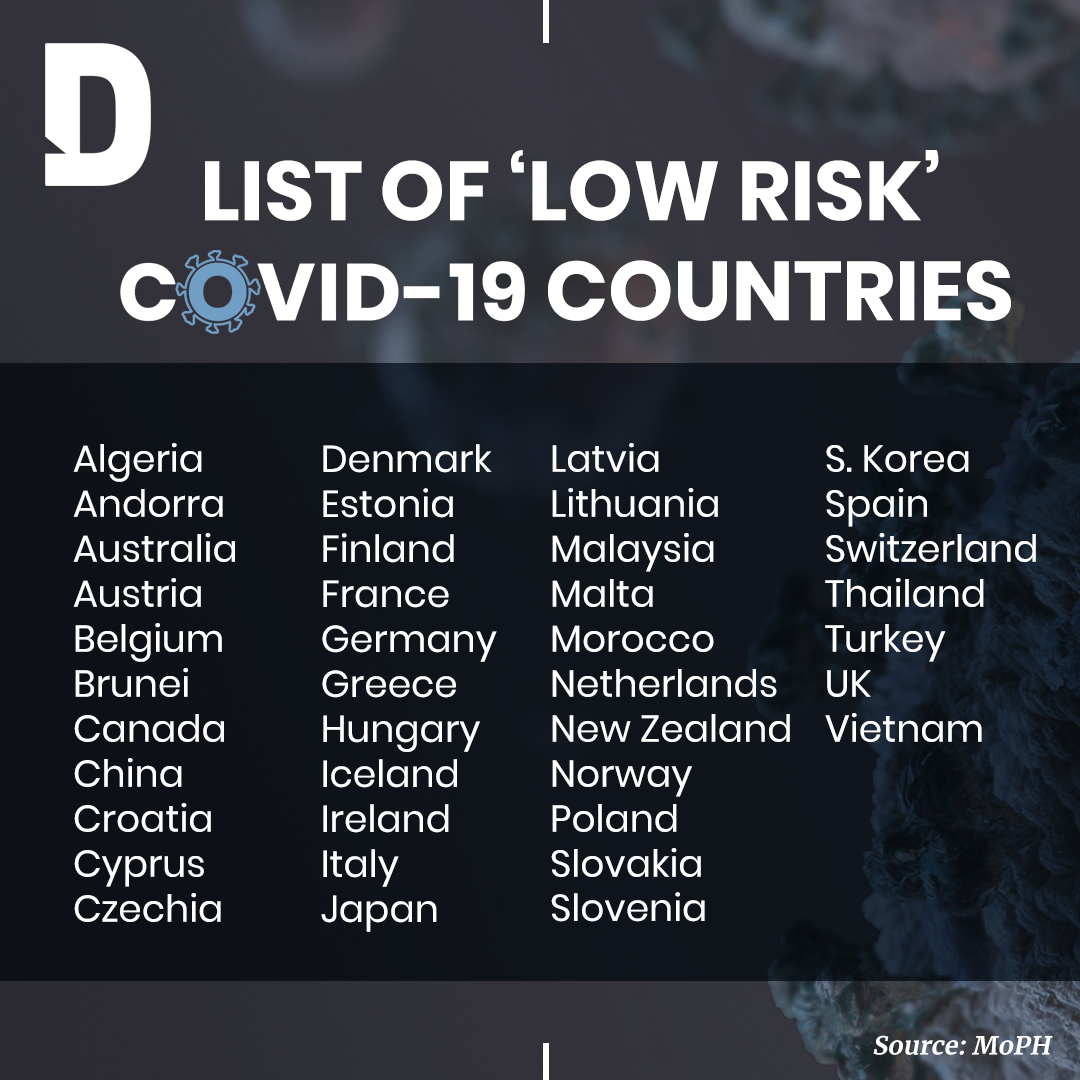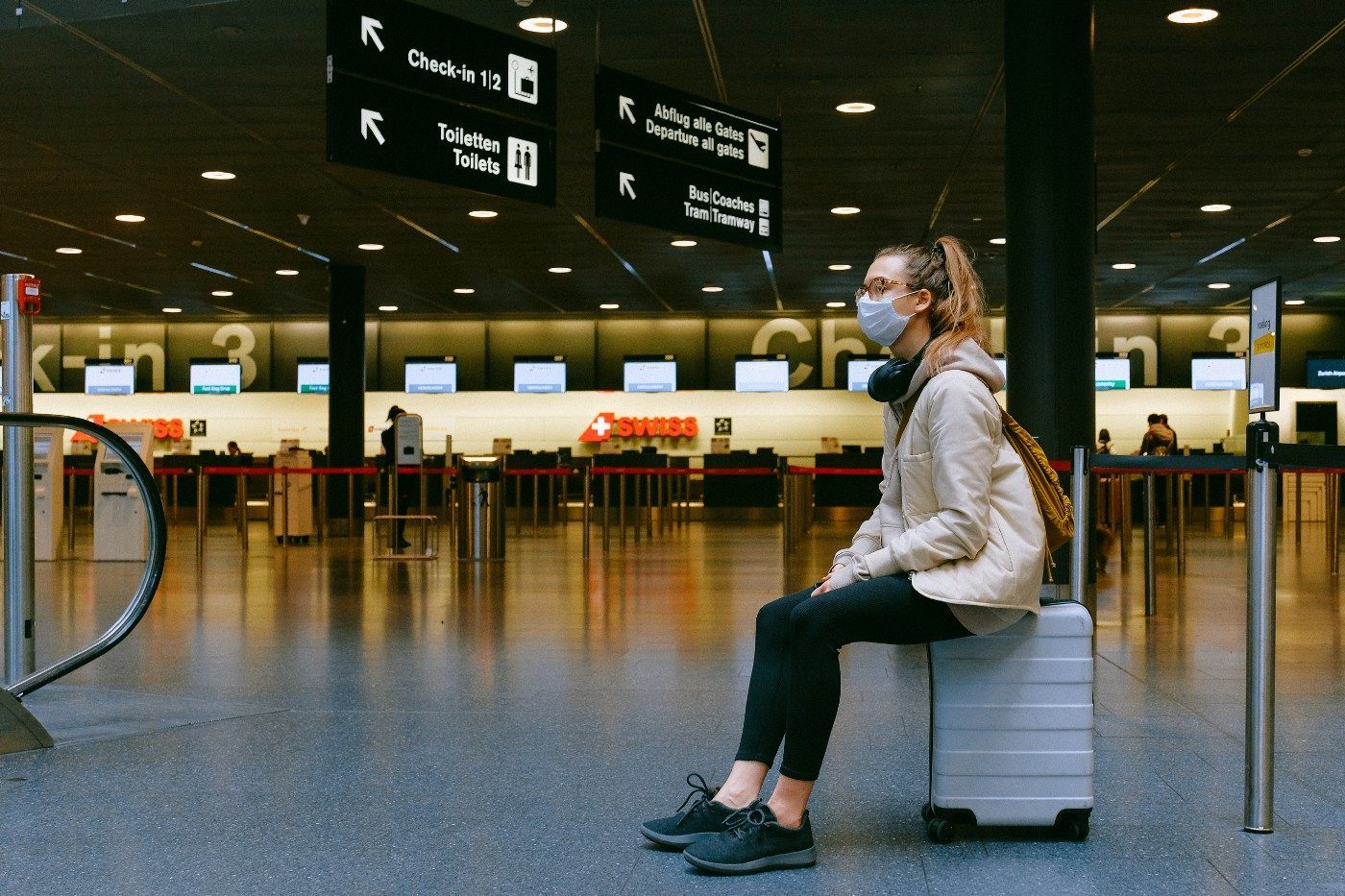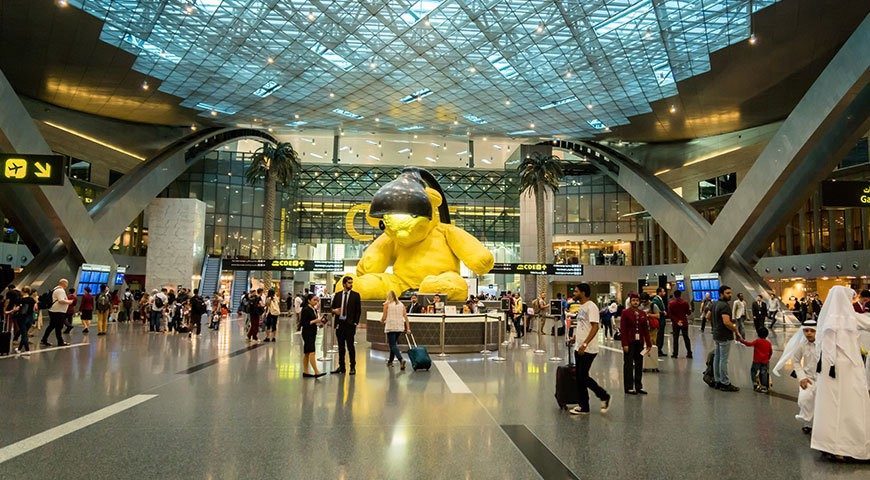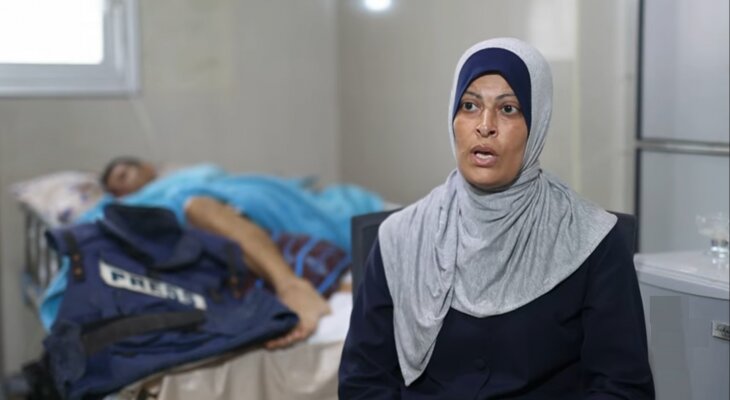by Sahar ElKabbash
Travel restrictions on incoming passengers have been reviewed by the government of Qatar, with hotel quarantine largely lifted and a list of ‘low risk’ countries published.
Amends to Qatar’s previous travel restrictions and hotel quarantine plans will come into force on August 1, the start of phase three of the country’s lockdown-lifting plan. The announcement was published late at night on July, 21, 2020, and can now be viewed in full on the Ministry of Public Health (MOPH’s) COVID-19 website.
A list of 40 low risk countries has been published, and includes much of Western Europe. It is not known how the risk of these countries was assessed given that some still have relatively high infection rates. The list of low-risk countries will be reviewed every two weeks.

Arrivals to Qatar from low-risk countries
Upon return to Doha’s Hamad International Airport from low-risk countries, passengers will be tested at the airport and then required to undergo home quarantine for seven days. They will be tested on day six of home quarantine by appointment at a drive-through Primary Health Care Corporation (PHCC) facility. If the test is negative, they will be released from home quarantine on day seven. If their test result is positive, they will be placed under appropriate isolation.
Travellers may also present a valid COVID-free certificate from an accredited COVID-19 testing centre in one of the low-risk countries, although currently these centres only exist in Turkey. So long as the certificate was issued no more than 48 hours before travel, the passenger will be exempted from taking the test at the airport upon arrival.
Travellers who have already booked hotel quarantine, which was declared mandatory some weeks ago, may now seek a refund through Discover Qatar.
Qatari citizens and permanent residency holders
Qatari citizens (and their wives, spouses and children) and permanent residency holders can travel outside Qatar and return at any time, although must abide by the rules of the countries they visit. They are also subject to the same requirements for testing and home quarantine mentioned above.
Patients who are being medically treated abroad at the expense of the state of Qatar — plus their registered companions — and employees dispatched for work assignments, will be exempt from bearing the cost of the hotel quarantine.
Residents
Residents of Qatar will be allowed to return starting in phase 3, on August 1. These residents will have to submit return requests via Qatar Portal, upon which the priority of return will be decided. Priorities include public health indicators, the nature of the needs of the various government and semi-government sectors and humanitarian cases.
Employers of blue-collar workers in the private sector and domestic workers must bear the costs of the quarantine after obtaining an entry permit.

Workers are advised to coordinate their travel dates with their employers. In particular, students and staff in the education sector are advised to take their quarantine period into consideration before planning their arrival to avoid absence during mandatory school days.
Arrivals from countries that are not designated ‘low risk’
Those returning from higher-risk countries will have to quarantine at a hotel at their own expense for one week upon arrival to Qatar. Bookings must be made through Discover Qatar before arriving in Qatar.
If their post-quarantine COVID-19 test comes out positive, the traveller will be transferred to isolation. If negative, the person must commit to home quarantine for another week.
According to MOPH, the following categories are eligible for home quarantine regardless of the country of departure:
- Those over 55
- Those who have had an organ or spinal cord transplant
- Those who receive immunosuppressive therapy
- Those who suffer from heart disease
- Those who suffer from moderate to severe asthma
- Those who receive cancer treatment
- Pregnant women
- Babysitting mothers with children up to five-years-old
- Those who suffer from kidney failure
- Those with chronic liver disease
- Those with lower limb amputation
- Those with disabilities who require support to carry out activities
- Disabled children and their mothers
- Those who suffer from epilepsy and receive treatment
- Those with diabetic foot
- Those with immediate relatives who have died in the 10 days prior to their arrival
- Those receiving treatment for mental and psychiatric illnesses, and people suffering from claustrophobia
- Those who suffer from diabetes and receive treatment
- Those who have high blood pressure
For more information regarding the process of issuing return permits to the State of Qatar, you can visit the Ministry of Public Health or phone the Government Contact Centre on 109.







